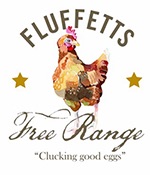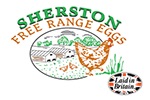On 6th July, Nature Scotland closed its two island national nature reserves, Noss and Isle of May, to the public, to give the seabird colonies the best chance of survival and recovery.
Dead seabirds have been found on the Bass Rock, the Farne Islands, and the Norfolk coast. Similar outbreaks are now occurring in seabird colonies in the US.
Nationally, there are calculated to be 8 million breeding seabirds from 25 different species.
Six of these species are on the Red List of British birds for conservation and a further 18 species are on the Amber List.
Predatory species like the Skua are particularly vulnerable to easily picking up the HPAI virus.
A consortium of eight leading scientists, headed by the Pirbright Institute, and including the Royal Veterinary College, have received £1.5 million from the Biotechnology and Bioscience Research Council and Defra, to review future strategy relating to outbreaks of Avian Flu.Others taking part are the Animal and Plant Health Agency, The Roslin Institute, University of Cambridge, Imperial College, London, University of Leeds and the University of Nottingham.
The collaboration is set to last one year.
Amongst other things, they will define the epidemiology of AI in wild birds and commercial flocks.
Also of interest, is the finding of the H5N1 strain in foxes and other mammals in the US and Canada, and the potential of becoming reservoirs of infection for avians and humans.
The US has seen 186 outbreaks of H5N1 since February, including 25 farms of commercial layers, totalling 31 million birds, and 856,000 pullets.
A further 190 outbreaks were recorded in backyard flocks.
Poultry Med report 2,398 outbreaks of HPAI in commercial flocks in Europe in 2021/22, and a further 2,733 in wild birds.
46 million commercial birds were depopulated.
There have been 750 cases in commercial poultry between March 16th and June 10th, 2022, alone.
Preliminary epidemiology suggests that 86% of poultry outbreaks were attributed to lateral spread between farms.
68% of the outbreaks were in France, 24% in Hungary and about 2% in each of the other reporting countries.
158 cases in wild birds were reported in Germany, 98 in the Netherlands and 48 in the UK. It is now concluded that infection is endemic in wild birds, and thus they present an ongoing risk for commercial poultry, especially free-range.
Some scientists believe that the change from an exotic disease to a seasonally endemic situation, indicates the semi-annual slaughter policy is no longer a valid strategy.
France has already started a vaccine approach.








